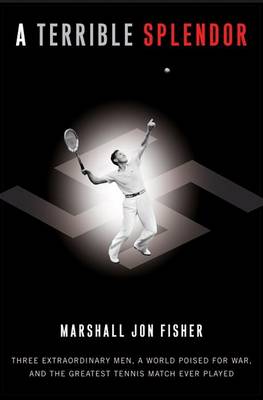
brokentune
Written on Feb 14, 2014
I am utterly exhausted today. I didn't get much sleep last night. It was just too hard to put this book down, so I read on until the wee small hours of this morning when I finished the last chapter.
And it all started with this...
"JULY THE TWENTIETH, 1937, AND Baron Gottfried von Cramm tosses a new white Slazenger tennis ball three feet above his head. It seems to hang there suspended for the slightest of moments, a distant frozen moon, before his wooden racket plucks it out of the electrified air of Wimbledon's Centre Court, rocketing a service winner past J. Donald Budge."
Last month I posted a few thoughts about my issues with non-fiction books which read like fiction and the insincerity that I feel when reading overly dramatised accounts of historic event (posted here: One Minute to Midnight), Terrible Splendor restores my belief that it is possible to write a work of non-fiction about a very specialised subject and still be engaging and believable.
Granted, Fisher's book title does read like a headline in a second-rate newspaper but it is not representative of the way the book is written. Fisher does a great job of presenting not only the biographies of the three tennis greats - Gottfried von Cramm, Don Budge, and Big Bill Tilden - but he also manages to provide extremely detailed contexts surrounding their lives, including not only the historical events of the time or insights into the relationships with family and other contemporaries but also very descriptive accounts of the development of their playing styles and tennis technique.
Now, I can appreciate that this level of detail may not be to every reader's taste but I thought it was just wonderful. If you're not into tennis, the technical descriptions of grips, racquet specs, service techniques, and plays are probably skip-able.
I particularly enjoyed learning about the development of tennis as a sport, how the Davis Cup originated, and how grand slam tournaments like Wimbledon have changed in the last 100 years. After all, it is almost inconceivable today that Wimbledon and other major tournaments were for amateurs only and professional tennis players were not allowed to participate until 1968.
The main focus of the book is, of course, on the lives of von Cramm, Budge and Tilden - each an interesting personality - but von Cramm's story, which is much forgotten today, is just as extraordinary and tragic as it is inspirational.
